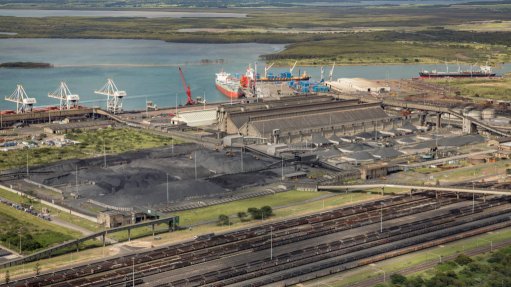How geopolitics is changing the climate action landscape
Reality sings a different tune these days: hard power has thrown out the soft power model of the late Joseph Nye. Hard power now decides the terms, and the world has to adapt to the new posture infecting global diplomacy.
Climate change negotiations within the multilateral system – which is in tatters today – are an instrument of soft power. When a single hegemonic universe existed, it was tinged with liberal values holding together a strong Western alliance involving North America, Europe and some Asian States. Soft power dimensions were a useful instrument to push for a preferred global system and weaken the influence of those opposed to the dominance of a Western liberal order. It had its value as a tool of propaganda as well – the idea that democracy and the market must be the universe we live in.
The global political landscape is changing so fast that all assumptions we may have held are no longer tenable, and this is altering the way we envisage a series of ambitions on climate change, given the prevailing reality.Preparations for some war or the other preoccupy the mindset, as does strategic competition over key technologies, such as AI, security over critical minerals supply, energy security and even land and seascapes deemed essential for military purposes.
This hard push for change is also finding its way into the realms of culture and language. With respect to language, certain words are now permissible while others are not – words such as ‘diversity’, ‘environment’, ‘justice’, ‘climate’, among others associated with a particular social or political affiliation. This has led to self-censorship and, in some cases, outright deletion.
The entire atmosphere is churlish, as progressive language is increasingly being toned down, thereby pushing prominent political figures in Europe, as well as the CEOs of major corporations, to retreat into ideological trenches – giving up previously held convictions in response to the emerging language policing.
Even at the G20, within working groups dealing with energy transitions, using the phrase ‘just transition’ will provoke significant resistance from some member States. It is no longer acceptable to use such words.
Neo-traditionalism – currently asserting itself in the culture wars – is succeeding in mainstreaming or revitalising claims over old values.
Unlikely alliances between West and East are contributing to the displacement of liberal values in favour of traditionalism. Traces of this thinking can be seen from JD Vance in the US to Alexander Dugin in Russia.
Traditionalism is becoming the core of a growing value system that justifies harshness, the breakdown of liberal values and the re-assertion of forms of authority which in traditionalism are not seen as autocratic but the protection of all forms of values and cultural life that have been rejected by liberal culture. Cultural preservation needs to reign over homogeneity.
Traditionalism can be construed as a way to constrain liberalism in order to justify and legitimise the exercise of total power over society. It is no surprise that, in some places, the idea of the President as a monarch is both embraced and applauded.
Shifting cultural norms, backed by hard power and isolationism, are deemed as necessary means to justify a desired end.
Change, when reinforced by hard power, typically begins with the renunciation of whatever prevailing system is misaligned with traditionalism. Since the driving force behind such change is part of a great power rivalry, this firestorm of change is also being pushed through the corridors of the UN and every other multilateral organisation, including the World Trade Organisation (WTO) and the North Atlantic Treaty Organisation.
We are witnessing this unfold on other fronts too. For instance, the International Seabed Authority (ISA) is having a hard time exercising its remit over the deep sea and keeping UNCLOS alive. US President Donald Trump has just granted permits to various US companies to exploit the Clarion Clipperton Zone, just off the coast of Hawaii, to harvest mineral nodules from the seabed for processing into precious critical minerals.
In this context, the rules underpinning the ISA’s jurisdiction are seen as favouring rivals and shackling the aspirations of traditional powers threatened by the rise of new powers – chief among them China!
China has attained a strategic advantage by controlling a significant portion of the world’s rare earths supply – not because it owns all the critical minerals needed for AI, quantum computers, military hardware or wind turbines, but because it has had the foresight to engage in a long game of technological advancement and market domination. Chinese dominance in crucial clean-energy technologies has demonstrated the cost-effectiveness and efficiency of vertically integrating key supply chains and inputs in the production process.
For the future of the climate and environmental sectors, there is now a full-blown assault on the architecture of the global climate and environmental system.
This also raises serious questions about whether special climate measures proposed by some G7 members can be aligned with the new maelstrom. The future of the Carbon Border Adjustment Mechanism is on the line – and the EU has to do much thinking with regard to its continued viability, including its own ability to compete with rivals in the arena of new industrialism.
Nonetheless, innovations in the trade sector are emerging, despite the current state of play at the WTO. The EU, for instance, has introduced quasi trade instruments to further the ends of climate goals, with its own Clean Technology Investment Partnership with South Africa a case in point.
Nothing is totally undone yet; climate talks continue to teeter forward, with growing emphasis on implementation and the push for country platforms as the way to go.
Be that as it may, with the advent of hard power, established rules are subject to either a new orientation or outright destruction. It seems the end goal is not clear, but to break or wobblethe existing system is the clear intent.
Article Enquiry
Email Article
Save Article
Feedback
To advertise email advertising@creamermedia.co.za or click here
Announcements
What's On
Subscribe to improve your user experience...
Option 1 (equivalent of R125 a month):
Receive a weekly copy of Creamer Media's Engineering News & Mining Weekly magazine
(print copy for those in South Africa and e-magazine for those outside of South Africa)
Receive daily email newsletters
Access to full search results
Access archive of magazine back copies
Access to Projects in Progress
Access to ONE Research Report of your choice in PDF format
Option 2 (equivalent of R375 a month):
All benefits from Option 1
PLUS
Access to Creamer Media's Research Channel Africa for ALL Research Reports, in PDF format, on various industrial and mining sectors
including Electricity; Water; Energy Transition; Hydrogen; Roads, Rail and Ports; Coal; Gold; Platinum; Battery Metals; etc.
Already a subscriber?
Forgotten your password?
Receive weekly copy of Creamer Media's Engineering News & Mining Weekly magazine (print copy for those in South Africa and e-magazine for those outside of South Africa)
➕
Recieve daily email newsletters
➕
Access to full search results
➕
Access archive of magazine back copies
➕
Access to Projects in Progress
➕
Access to ONE Research Report of your choice in PDF format
RESEARCH CHANNEL AFRICA
R4500 (equivalent of R375 a month)
SUBSCRIBEAll benefits from Option 1
➕
Access to Creamer Media's Research Channel Africa for ALL Research Reports on various industrial and mining sectors, in PDF format, including on:
Electricity
➕
Water
➕
Energy Transition
➕
Hydrogen
➕
Roads, Rail and Ports
➕
Coal
➕
Gold
➕
Platinum
➕
Battery Metals
➕
etc.
Receive all benefits from Option 1 or Option 2 delivered to numerous people at your company
➕
Multiple User names and Passwords for simultaneous log-ins
➕
Intranet integration access to all in your organisation


















